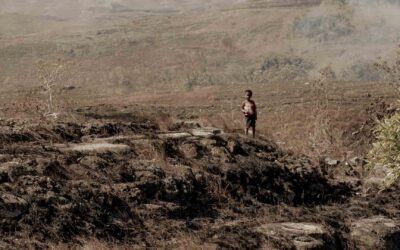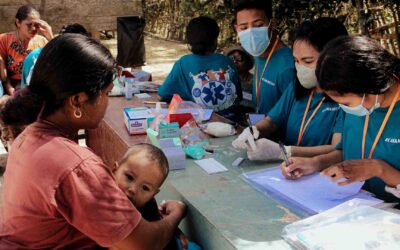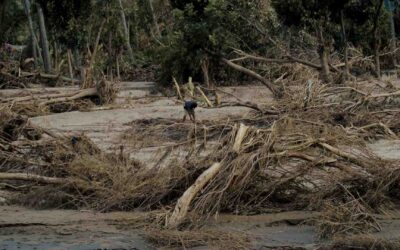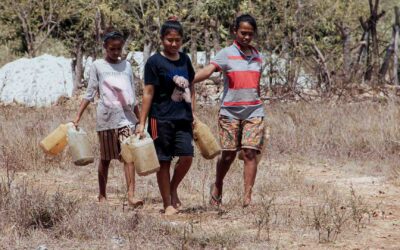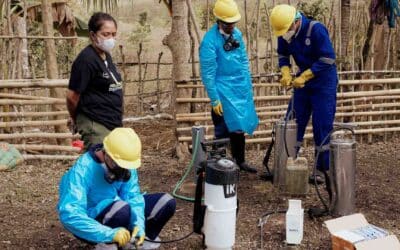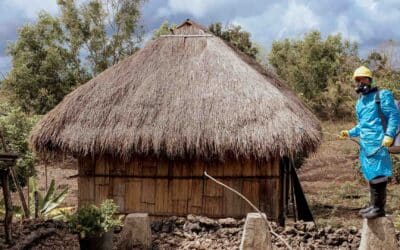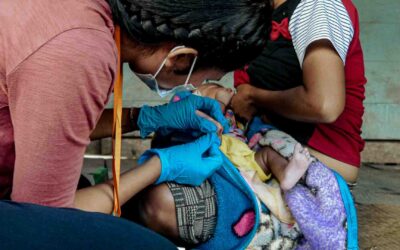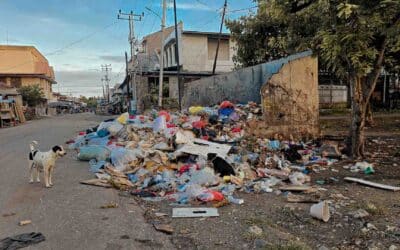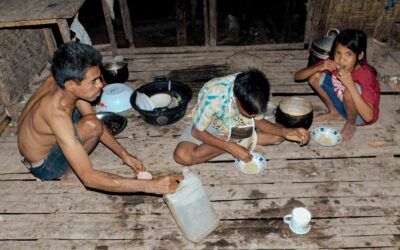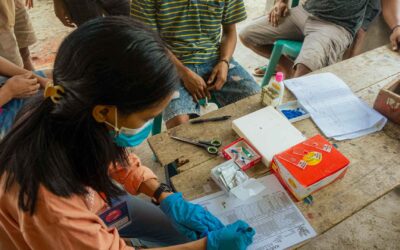Extreme heat is not just weather in ultra-rural communities. It is a medical risk that worsens dehydration, malnutrition, and infections. From the field, we see how simple actions and early recognition of heat illness save lives every day.
After years of walking to find dirty water, villages like Laindatang, Hambarita or Mbinudita can now access clean water from community reservoirs they built themselves. Clean water reduces diarrhea, skin infections, and fear. This is a true reflection of dignity in daily life.
Donate
Support Care
Programs
All projects
Quick News
Field updates
Stories
Field stories
CLIMATE & HEALTH: WHEN THE EARTH GETS SICK, PEOPLE DO TOO
Climate change is not abstract for us. It is dry wells, failed harvests, floods that cut roads, and mosquitoes bringing malaria into new places. Fair Future and Kawan Baik link climate and medicine every day, building water systems and delivering care to families where the crisis hits first.
The Climate & Health category of the Fair Future Foundation explores how a changing climate directly harms human health in ultra-rural Indonesia. Droughts, unsafe water, heat, floods and new mosquito patterns increase cases of malnutrition, diarrhoeal disease, malaria, and respiratory infections.
Here, we document the medical impacts of climate disruption and the solutions developed by Fair Future and Kawan Baik Indonesia—from clean water systems and resilient infrastructures to community-based health programs. This category highlights how protecting lives today requires understanding the link between climate shocks and daily medical emergencies.
How a changing climate turns daily life into a health risk
Malaria Screening in Rural Indonesia | Swiss Medical Fieldwork
Beyond the rapid test, each screening includes education, explanation, and practical advice. This moment of dialogue often becomes the first real medical consultation families have ever received, turning a diagnosis into immediate protection.
Environment and Climate Action
In Eastern part of Indonesia, climate change is not abstract. It dries up crops, kills trees, spreads disease, and worsens poverty. The Environment and Climate Program acts locally to address global emergencies—through waste management, education, water access, and community-led adaptation.
Climate Change and Health in Rural Indonesia
Climate change does not arrive as a concept in the villages where we work. It arrives as fever, diarrhoea, breathless farmers and dry wells. Each new reservoir, each trained health agent and each malaria test is a practical answer to a crisis that reshapes daily life.
East Sumba malaria prevention 2025 | Field results summary
This article reports field dates, methods and impact from East Sumba malaria prevention. Teams worked with Puskesmas, schools and village leaders to align education, IRS, LLINs and diagnostics. Data and costs are fully documented so partners and health services can improve coverage, reduce transmission and replicate what works.
Nutrition and Food for Remote Villages
The Nutrition and Food Program helps rural families access better food, grow home gardens, and improve their health. Linked to clean water, it tackles malnutrition and supports children’s development. In ultra-rural areas, food is not a given; it’s a survival challenge we face together.
Indoor Residual Spraying malaria – Fair Future Foundation
The Kawan Against Malaria program delivers Indoor Residual Spraying malaria operations in East Sumba. Trained teams spray bamboo and wooden homes, surface by surface, to kill mosquitoes and reduce transmission. Each treated house becomes a safer place for children and families.
East Sumba Malaria Prevention 2025
Fair Future and Kawan Baik Indonesia lead a three-month malaria prevention project in East Sumba. The initiative combines lab training, awareness campaigns, indoor spraying, and the distribution of insecticide-treated nets to protect thousands of vulnerable families.
My Waste My Responsibility for a Healthier Future
In Indonesia, unmanaged waste pollution poses a significant threat to lives by causing diseases and environmental harm. Our campaign, “My Waste My Responsibility,” calls for urgent action to address this crisis and advocates for improved policies. We focus on educating the public, taking action, and striving for cleaner air and water to foster healthier communities.
Why We Keep Getting Sick
In Laindatang, a child asked why he and his family are always sick. The answer lies in the water: diarrhea, typhoid, skin infections, hepatitis A. Fair Future fights back with clean water and frontline medical care.
What Is Malaria and How to Prevent It
Malaria enters silently and can kill within days. But it’s preventable. Learn what malaria is, how it spreads, who is most at risk, and how Fair Future acts daily to stop this disease before it strikes.
WMO Confirms 2024 as Warmest Year Impacting Water Access
The WMO has declared 2024 as the warmest year on record, with temperatures soaring to 1.55°C above pre-industrial levels. In Indonesia’s most remote areas, this exacerbates water shortages and leads to worsening health problems, malnutrition, and disease outbreaks. Fair Future’s Water Connections program is actively tackling this critical situation.



